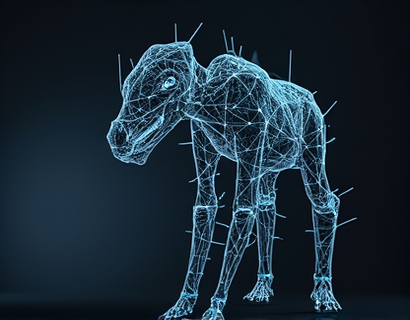Decentralized Authentication: Elevating Business Security and Streamlining Access with Advanced Identity Management Solutions
In the digital age, the importance of robust security measures cannot be overstated. As businesses increasingly rely on digital platforms to conduct operations, the need for advanced identity management solutions has become paramount. Decentralized authentication stands out as a transformative approach, offering enhanced security and streamlined access control. This method leverages cutting-edge technology to manage user identities in a way that traditional centralized systems cannot match. By understanding the principles and benefits of decentralized authentication, businesses can better position themselves to face the evolving challenges of cybersecurity.
Decentralized authentication, also known as decentralized identity management, operates on a fundamentally different model compared to conventional centralized systems. In a centralized system, a single entity, often a server or a database, holds and manages all user credentials and identity data. This central point of control, while seemingly convenient, introduces significant vulnerabilities. A breach in this central system can compromise vast amounts of sensitive information, leading to severe security risks and potential operational disruptions.
In contrast, decentralized authentication distributes the management of user identities across a network of nodes, eliminating the need for a single point of failure. This distributed ledger technology, often based on blockchain, ensures that no single entity has complete control over the identity data. Each participant in the network maintains a copy of the identity information, which is encrypted and linked through cryptographic hashes. This design not only enhances security but also promotes transparency and trust among participants.
The core advantage of decentralized authentication lies in its ability to provide a more secure and resilient identity management framework. By removing the central authority, the risk of large-scale data breaches is significantly reduced. Even if one node in the network is compromised, the overall system remains intact, as the attacker would need to breach multiple nodes simultaneously to gain unauthorized access. This distributed nature makes decentralized systems inherently more secure against both internal and external threats.
Moreover, decentralized authentication enhances user privacy. In traditional systems, user data is often stored in a central database, making it a prime target for hackers. With decentralized solutions, user identities are stored locally on users' devices or in a distributed network, reducing the amount of sensitive data exposed to potential breaches. Users have greater control over their own identity data, deciding who can access it and under what conditions. This empowerment fosters a higher level of trust between users and the services they interact with.
Another significant benefit of decentralized authentication is the improvement in operational efficiency. Traditional centralized systems can become bottlenecks, especially as the number of users and transactions grows. Decentralized networks, by design, can handle a larger volume of requests without significant performance degradation. The load is distributed across multiple nodes, ensuring that no single node is overwhelmed. This scalability is crucial for businesses that experience rapid growth or handle high volumes of user interactions.
Implementing decentralized authentication also streamlines access control processes. With a centralized system, managing user permissions and access levels can be cumbersome and error-prone. Decentralized solutions automate many of these tasks through smart contracts and automated workflows. These smart contracts enforce predefined rules and conditions, ensuring that access is granted only to authorized users. This automation reduces the risk of human error and simplifies the management of complex access control policies.
The integration of decentralized authentication with advanced identity management solutions offers a comprehensive approach to securing business operations. These solutions often incorporate multi-factor authentication (MFA), biometric verification, and other advanced security measures to further bolster protection. By combining decentralized identity management with these enhanced security protocols, businesses can create a robust defense against sophisticated cyber threats.
One of the key challenges in adopting decentralized authentication is the transition from legacy systems. Businesses must carefully plan and execute the migration to ensure minimal disruption to their operations. This process involves assessing the current infrastructure, identifying compatibility issues, and selecting the right decentralized identity management solutions. Partnering with experienced providers can facilitate this transition, offering expertise and support to navigate the complexities involved.
Another consideration is the regulatory compliance aspect. As data protection regulations like GDPR and CCPA become more stringent, businesses must ensure that their identity management solutions comply with these standards. Decentralized authentication solutions are designed with compliance in mind, providing features such as data minimization, consent management, and audit trails. These features help businesses meet regulatory requirements while maintaining a strong security posture.
The adoption of decentralized authentication is not limited to large enterprises. Small and medium-sized businesses can also benefit from these advanced identity management solutions. Cloud-based decentralized platforms offer scalable and cost-effective options, making it feasible for businesses of all sizes to enhance their security measures. These platforms often come with user-friendly interfaces and integrated tools, reducing the technical barriers to implementation.
Case studies from various industries demonstrate the positive impact of decentralized authentication. For instance, in the financial sector, banks have adopted decentralized identity management to protect customer data and comply with regulatory standards. The result has been a significant reduction in fraud cases and an improvement in customer trust. Similarly, in the healthcare industry, decentralized solutions have enabled secure sharing of patient records while maintaining privacy and compliance with health data regulations.
The future of decentralized authentication looks promising, with ongoing advancements in technology and increasing adoption across industries. The integration of artificial intelligence and machine learning can further enhance the capabilities of decentralized identity management systems. These technologies can help detect anomalies, predict potential threats, and automate response actions, creating a more proactive and intelligent security framework.
In conclusion, decentralized authentication represents a significant leap forward in business security and access control. By offering enhanced security, improved user privacy, and operational efficiency, these advanced identity management solutions are essential for modern enterprises. As businesses continue to face evolving cybersecurity challenges, embracing decentralized authentication will be crucial in safeguarding sensitive data and maintaining operational excellence.











































